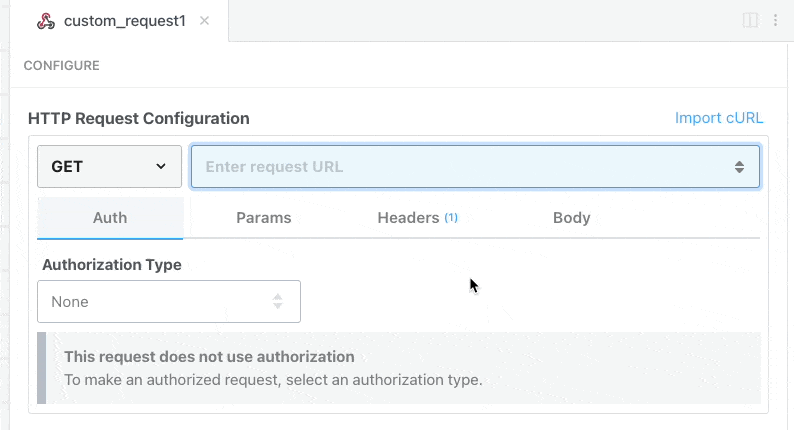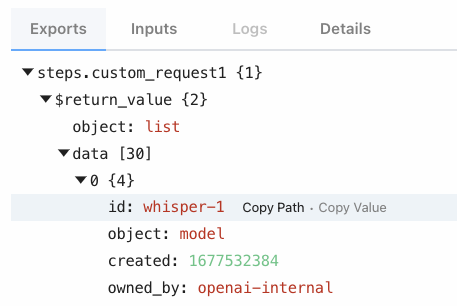What do you want to automate
with HTTP / Webhook and Quickbase?
Prompt, edit and deploy AI agents that connect to HTTP / Webhook, Quickbase and 3,000+ other apps in seconds.
Trusted by 1,000,000+ developers from startups to Fortune 500 companies
Popular Ways to Connect HTTP / Webhook with Quickbase#
Popular HTTP / Webhook and Quickbase Triggers#
Get a URL and emit the full HTTP event on every request (including headers and query parameters). You can also configure the HTTP response code, body, and more.
Get a URL and emit the HTTP body as an event on every request
Emit new event each time a new record is created in a specified table in Quickbase.
Emit new event when the content of the URL changes.
Popular HTTP / Webhook and Quickbase Actions#
Creates a new record in a Quick Base table. See the documentation
Send an HTTP request using any method and URL. Optionally configure query string parameters, headers, and basic auth.
Send an HTTP GET request to any URL. Optionally configure query string parameters, headers and basic auth.
Updates an existing record in a Quick Base table. See the documentation
Overview of HTTP / Webhook#
Build, test, and send HTTP requests without code using your Pipedream workflows. The HTTP / Webhook action is a tool to build HTTP requests with a Postman-like graphical interface.

Point and click HTTP requests
Define the target URL, HTTP verb, headers, query parameters, and payload body without writing custom code.

Focus on integrating, not authenticating
This action can also use your connected accounts with third-party APIs. Selecting an integrated app will automatically update the request’s headers to authenticate with the app properly, and even inject your token dynamically.

Pipedream integrates with thousands of APIs, but if you can’t find a Pipedream integration simply use Environment Variables in your request headers to authenticate with.
Compatible with no code actions or Node.js and Python
The HTTP/Webhook action exports HTTP response data for use in subsequent workflow steps, enabling easy data transformation, further API calls, database storage, and more.
Response data is available for both coded (Node.js, Python) and no-code steps within your workflow.

Connect HTTP / Webhook#
// To use any npm package on Pipedream, just import it
import axios from "axios"
export default defineComponent({
async run({ steps, $ }) {
const { data } = await axios({
method: "GET",
url: "https://pokeapi.co/api/v2/pokemon/charizard",
})
return data.species
},
})
Overview of Quickbase#
Quickbase is a low-code platform for building operational applications and automations that can manage data, workflows, and reporting. Using Pipedream's serverless platform, you can tap into the robust Quickbase API to weave complex workflows that respond to events, synchronize data across multiple systems, and streamline business processes. With Pipedream, you can trigger on events in Quickbase, or from 3,000+ other apps, and write Node.js code to integrate with the Quickbase API directly, enabling a broad range of automation possibilities.
Connect Quickbase#
import { axios } from "@pipedream/platform"
export default defineComponent({
props: {
quickbase: {
type: "app",
app: "quickbase",
}
},
async run({steps, $}) {
return await axios($, {
url: `https://api.quickbase.com/v1/apps/brztjz2nz`,
headers: {
"QB-Realm-Hostname": `${this.quickbase.$auth.hostname}`,
"User-Agent": `@PipedreamHQ/pipedream v0.1`,
"Authorization": `QB-USER-TOKEN ${this.quickbase.$auth.user_token}`,
"Content-Type": `application/json`,
},
})
},
})
Community Posts#

